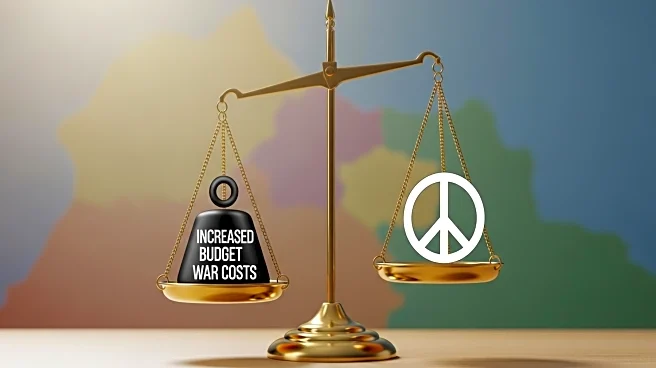What is the story about?
What's Happening?
The Israeli Knesset has approved a significant increase in the state budget, amounting to NIS 31 billion, to cover the costs associated with military operations in Gaza and an attack on Iran. This budgetary adjustment is intended to fund 'Gideon's Chariots A,' a military initiative, while the IDF's request for an additional NIS 20 billion for 'Gideon's Chariots B' remains unfunded. This marks the fifth instance in two years where the Israeli government has exceeded its approved budget, highlighting the financial strain of ongoing military engagements.
Why It's Important?
The budget increase underscores the financial burden of Israel's military operations, which could have significant implications for the country's economy and public services. The decision reflects the prioritization of defense spending amidst regional tensions, potentially affecting domestic policy and international relations. The increased military expenditure may lead to debates over resource allocation, impacting social programs and economic stability. Stakeholders such as taxpayers, defense contractors, and political leaders will be closely monitoring the outcomes of this budgetary decision.
What's Next?
The Israeli government may face scrutiny from both domestic and international observers regarding its budgetary priorities. Potential reactions could include public protests or political opposition, especially if social services are perceived to be underfunded. Additionally, the IDF's unmet funding request for 'Gideon's Chariots B' could lead to further negotiations or adjustments in military strategy. The situation may also influence Israel's diplomatic relations, particularly with countries involved in the regional conflict.
Beyond the Headlines
The budget increase raises ethical questions about the cost of military engagements and their impact on civilian populations. The financial strain could lead to long-term economic challenges, affecting Israel's ability to invest in infrastructure, education, and healthcare. The decision also highlights the complex balance between national security and social welfare, prompting discussions on the sustainability of current defense policies.















